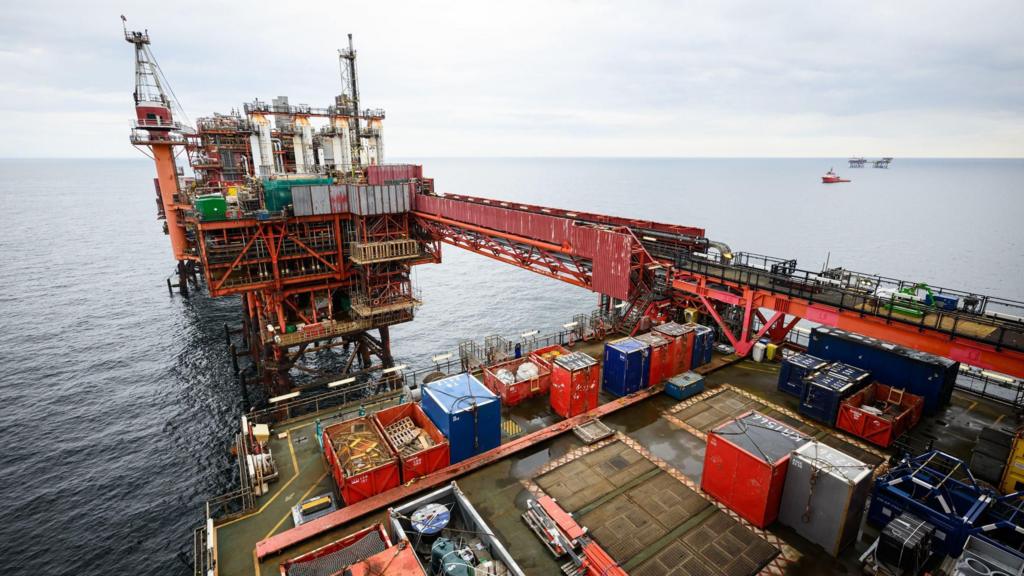The UK government has released new guidelines for assessing oil and gas project applications, mandating comprehensive environmental impact assessments.
These assessments must now account for emissions from the combustion of produced oil and gas, not just those from extraction.
This development significantly impacts the future of the controversial Rosebank and Jackdaw fields in Scotland, though final approval remains uncertain.
Energy Minister Michael Shanks stated the guidance clarifies the path forward for the North Sea oil and gas industry.
Conversely, climate activists argue that new developments will minimally reduce the UK’s reliance on imported fossil fuels.
The new guidelines are a direct response to a landmark Supreme Court ruling, which stipulated that Surrey County Council should have considered the complete climate impact of burning oil from new wells.
Previously, assessments only considered emissions during extraction, excluding the greenhouse gases released upon combustion (“downstream” or “Scope 3” emissions).
In January, the Court of Session in Edinburgh ruled that this should apply retrospectively to Rosebank and Jackdaw.
Shell’s Jackdaw gas field, approved in 2022, and the Rosebank oil development, granted permission in autumn 2023, are now subject to this new assessment.
Lord Ericht clarified that work can continue, pending fresh approvals for extraction.
The Offshore Petroleum Regulator for Environment and Decommissioning and the North Sea Transition Authority had temporarily suspended decisions on new drilling licenses until governmental clarification.
With the new guidance published, developers can resubmit applications for consent to extract from already-licensed fields.
Energy Secretary Ed Miliband and the regulator will reassess, factoring in downstream emissions.
Miliband previously criticized the Rosebank license as “climate vandalism”.
The UK government will assess environmental impact alongside economic and other relevant factors on a case-by-case basis.
Decisions are not anticipated until autumn at the earliest.
Michael Shanks emphasized the guidance’s role in ensuring thorough consideration of oil and gas extraction’s implications, aiming for a managed transition to clean energy.
He highlighted the government’s commitment to supporting jobs and energy security in the North Sea’s clean energy future.
First Minister John Swinney stated his government will carefully consider the implications, emphasizing the need for objective and dispassionate decision-making.
Tessa Khan of Uplift hailed the guidance as a step towards transparency regarding the climate harm caused by oil and gas companies.
She highlighted the incompatibility of projects like Rosebank with the UK’s climate commitments and urged the government to reject it.
Khan further argued that Rosebank is economically unfavorable and wouldn’t enhance energy independence.
A Shell spokesperson reaffirmed their commitment to delivering Jackdaw, citing its national importance and contribution to the government’s growth agenda.
Greenpeace UK, while supporting the inclusion of combustion emissions in decision-making, warned against approving projects like Rosebank, labeling it a political maneuver benefiting oil companies.
Mel Evans emphasized the need to prioritize renewable energy for genuine energy security and sustainable jobs.
The update follows the UK government’s Spending Review, which included funding for the Acorn Carbon Capture and Storage scheme.
Shanks also mentioned upcoming plans for Grangemouth’s future.
While offering no immediate answers, the update removes obstacles to development within existing licenses.
Operators must now provide comprehensive environmental impact assessments, detailing all greenhouse gas emissions, and justify their projects’ benefits against those emissions.
The minister will use a decision matrix to evaluate proposals, with the impact of this process remaining uncertain until the first decisions are made.
A period of uncertainty lies ahead, with clearer indications of the North Sea’s future potentially emerging from August onwards.
Conflict in the Middle East often leads to higher energy prices, which can feed through to inflation.
It is estimated more than 100 divers have lost their lives in the North Sea oil and gas industry.
A Hampshire lavender grower says a wet winter and warm spring have impacted crops.
Thameslink apologises to customers for the “difficult and uncomfortable experience”.
London councils take eight of the top 10 slots in the climate scorecard ranking.

